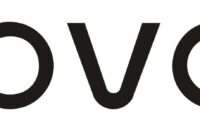- If subsequently approved, Entresto will be the first and only approved therapy for the treatment of symptomatic chronic heart failure patients aged 1 to <18 years in the European Union
- Pediatric heart failure is an important cause of childhood morbidity and mortality – up to a third of all pediatric cardiac admissions are due to heart failure; these hospitalizations are associated with a 20-fold increase in the risk of death1,2
- The positive opinion is based on final data from the 52-week Phase III PANORAMA-HF trial, the largest pediatric heart failure study ever conducted, and extrapolation of adult heart failure data from the Phase III PARADIGM-HF trial to pediatric patients3,4
- In this new indication the CHMP concluded that Entresto brings an important contribution to patient care and therefore fulfills the criteria of significant clinical benefit; if approved, this would support extension of the regulatory data protection to November 2026
Basel, 31 March, 2023 — Novartis announced today that the European Medicines Agency’s (EMA) Committee for Medicinal Products for Human Use (CHMP) has adopted a positive opinion recommending approval of Entresto (sacubitril/valsartan) for a new indication to treat symptomatic chronic heart failure with left ventricular systolic dysfunction in pediatric patients aged from 1 to <18 years.
“Many children diagnosed with heart failure will need a heart transplant before they turn five or in the worst cases almost a third will die within a year. However, the disease is largely managed with treatments approved for adults, based on data from adult studies,” said David Soergel, M.D., Global Head, Cardiovascular, Renal and Metabolism Development Unit, Novartis. “This positive opinion paves the way towards Novartis being able to provide children diagnosed with heart failure due to left ventricular systolic dysfunction in the EU and their families with an effective therapy in an age-appropriate formulation, helping to address what is a major unmet need.”
The positive opinion is based on final data from the 52-week Phase III PANORAMA-HF trial – the largest pediatric heart failure study ever conducted – and extrapolation of adult heart failure data from the Phase III PARADIGM-HF trial to pediatric patients3,4. The data showed Entresto provided similar clinically meaningful reductions from baseline in the cardiac biomarker N-terminal pro-B-type natriuretic peptide (NT-proBNP) – a biomarker commonly used to assess the severity and prognosis of heart failure – in adult heart failure patients and pediatric patients aged 1 to <18 years with heart failure due to left ventricular systolic dysfunction, allowing extrapolation of the demonstrated efficacy in adults to pediatric patients3,4. Compared to enalapril, the current standard of care in pediatric heart failure (but not specifically approved for pediatric heart failure), Entresto provided comparable to numerically better improvements from baseline on a number of clinically relevant endpoints3,4. Safety and tolerability of Entresto in pediatric patients were consistent with that observed in adult patients3,4.
Pediatric heart failure represents an important cause of morbidity and mortality in childhood. Up to 33% of all pediatric cardiac admissions are related to heart failure, and children whose hospitalization is complicated by heart failure can have more than a 20-fold increase in the risk of death1,2.
In this new indication the CHMP concluded that Entresto brings an important contribution to patient care and therefore fulfills the criteria of significant clinical benefit. If approved, Entresto will become available to children with a new age-appropriate formulation to enable accurate and convenient administration for these patients and their caregivers. This would support extension of the regulatory data protection to November 2026.
Entresto has been approved in the EU since 2015 in adult patients for treatment of symptomatic chronic heart failure with reduced ejection fraction (HFrEF)4. In the US, Entresto is indicated to reduce the risk of cardiovascular death and hospitalization for heart failure in adult patients with chronic heart failure, and has been approved since October 2019 to treat childhood heart failure due to left ventricular systolic dysfunction5.
About PANORAMA-HF
PANORAMA-HF was a two-part study3. Part 1 was an open-label dose determination study3. Part 2 was a randomized, double-blind, 52-week study comparing Entresto to the active comparator enalapril in patients aged 1 month to <18 years old with heart failure (HF) (NYHA/Ross Class II-IV) due to systemic left ventricular systolic dysfunction (LVEF <45% or fractional shortening ≤22.5%)3. It is the largest prospective pediatric HF trial conducted to date and employs the use of a global rank primary endpoint, based on clinical events encompassing death, initiation of mechanical life support, listing for urgent heart transplant, worsening HF, measures of functional capacity (NYHA/Ross scores) and patient-reported HF symptoms3. Additionally, NT-proBNP was used in the trial as a bridging biomarker for extrapolation from adults to the pediatric population3. The trial was conducted in 30 countries and 105 clinical sites across North America, Europe, Asia and Latin America3.
About our longstanding commitment to heart failure
Our goal is to reimagine medicine for HF patients. Novartis established the largest global clinical program in the HF disease area across the pharma industry to date. Known as FortiHFy, it is comprised of more than 40 clinical studies designed to generate an array of additional data on efficacy, quality of life, patient-reported outcomes and real-world evidence with Entresto, as well as to extend understanding of HF. FortiHFy includes trials across the spectrum of HF, such as PARADIGM-HF, PIONEER-HF, PANORAMA-HF, TRANSITION, PROVE-HF, PARAGON-HF and PARAMOUNT. Worldwide, it is estimated that more than 30,000 patients have participated in the Entresto clinical trials program, and it is estimated that around 10 million patients are on treatment with Entresto today.
About Entresto
In Europe, Entresto is indicated in adult patients for the treatment of symptomatic chronic HFrEF4. In the United States, Entresto is indicated to reduce the risk of cardiovascular death and hospitalization for HF in adult patients with chronic HF5. Benefits are most clearly evident in patients with LVEF below normal5. LVEF is a variable measure, so use clinical judgment in deciding whom to treat5. In the US, Entresto is also indicated for the treatment of symptomatic heart failure with systemic left ventricular systolic dysfunction in pediatric patients aged one year and older5. Entresto reduces NT-proBNP and is expected to improve cardiovascular outcomes5. Approved indications may vary depending upon the individual country.
Entresto is a twice-a-day medicine that reduces the strain on the failing heart4,5. It does this by enhancing protective neurohormonal systems (i.e., natriuretic peptide system) while simultaneously inhibiting the harmful effects of the overactive renin-angiotensin-aldosterone system (RAAS)4,5. Other common HF medicines, called angiotensin converting enzyme inhibitors (ACEi) and angiotensin II receptor blockers (ARBs), only block the harmful effects of the overactive RAAS. Entresto contains the neprilysin inhibitor sacubitril and the angiotensin receptor blocker (ARB) valsartan4,5.
Entresto was included in the 2021 European Society of Cardiology HF Guidelines as a cornerstone, first-line treatment to reduce the risk of death and HF hospitalization in patients with HFrEF6. This includes patients who have not previously been treated with ACEis or angiotensin-receptor blockers (ARB) and to replace ACEis or ARBs in symptomatic HFrEF patients6. These Guidelines are in line with the ACC Expert Consensus Decision Pathway (ECDP) also published in 2021, which recognize the value of Entresto by elevating it to a foundational first-line treatment7. The ACC ECDP states that Entresto is preferred over ACEi and ARB in all appropriate patients with HFrEF7.
Disclaimer
This press release contains forward-looking statements within the meaning of the United States Private Securities Litigation Reform Act of 1995. Forward-looking statements can generally be identified by words such as “potential,” “can,” “will,” “plan,” “may,” “could,” “would,” “expect,” “anticipate,” “seek,” “look forward,” “believe,” “committed,” “investigational,” “pipeline,” “launch,” or similar terms, or by express or implied discussions regarding potential marketing approvals, new indications or labeling for the investigational or approved products described in this press release, or regarding potential future revenues from such products. You should not place undue reliance on these statements. Such forward-looking statements are based on our current beliefs and expectations regarding future events, and are subject to significant known and unknown risks and uncertainties. Should one or more of these risks or uncertainties materialize, or should underlying assumptions prove incorrect, actual results may vary materially from those set forth in the forward-looking statements. There can be no guarantee that the investigational or approved products described in this press release will be submitted or approved for sale or for any additional indications or labeling in any market, or at any particular time. Nor can there be any guarantee that such products will be commercially successful in the future. In particular, our expectations regarding such products could be affected by, among other things, the uncertainties inherent in research and development, including clinical trial results and additional analysis of existing clinical data; regulatory actions or delays or government regulation generally; global trends toward health care cost containment, including government, payor and general public pricing and reimbursement pressures and requirements for increased pricing transparency; our ability to obtain or maintain proprietary intellectual property protection; the particular prescribing preferences of physicians and patients; general political, economic and business conditions, including the effects of and efforts to mitigate pandemic diseases such as COVID-19; safety, quality, data integrity or manufacturing issues; potential or actual data security and data privacy breaches, or disruptions of our information technology systems, and other risks and factors referred to in Novartis AG’s current Form 20-F on file with the US Securities and Exchange Commission. Novartis is providing the information in this press release as of this date and does not undertake any obligation to update any forward-looking statements contained in this press release as a result of new information, future events or otherwise.
About Novartis
Novartis is reimagining medicine to improve and extend people’s lives. We deliver high-value medicines that alleviate society’s greatest disease burdens through technology leadership in R&D and novel access approaches. In our quest to find new medicines, we consistently rank among the world’s top companies investing in research and development. About 106,000 people of more than 140 nationalities work together to bring Novartis products to nearly 800 million people around the world. Find out more at https://www.novartis.com
Novartis is on Twitter. Sign up to follow @Novartis at https://twitter.com/novartisnews
For Novartis multimedia content, please visit https://www.novartis.com/news/media-library
For questions about the site or required registration, please contact media.relations@novartis.com
References
- Das, BB. Current State of Pediatric Heart Failure. Children. 2018 Jul; 5(7): 88.
- Castro Díez C, Khalil F, Schwender H, et al. Pharmacotherapeutic management of paediatric heart failure and ACE-I use patterns: a European survey. BMJ Paediatrics Open. 2019;3:e000365.
- Novartis Data on File
- European Medicines Agency. Entresto (sacubitril/valsartan). Summary of product characteristics. http://www.ema.europa.eu/docs/en_GB/document_library/EPAR_-_Product_Information/human/004062/WC500197536.pdf. Accessed March 2023
- ENTRESTO [prescribing information]. East Hanover, NJ: Novartis Pharmaceuticals Corp; October 2019.
- McDonagh T, Metra M, Adamo M, et. Al. 2021 ESC Guidelines for the diagnosis and treatment of acute and chronic heart failure. Eur Heart J. 2021;00:1-128. doi:10.1093/eurheartj/ehab368.
- Maddox TM, Januzzi JL Jr, Allen LA, et al. 2021 update to the 2017 ACC expert consensus decision pathway for optimization of heart failure treatment: answers to 10 pivotal issues about heart failure with reduced ejection fraction: a report of the American College of Cardiology Solution. J Am Coll Cardiol. doi:10.1016/j.jacc.2020.11.022.
# # #
| Novartis Media Relations E-mail: media.relations@novartis.com |
|||||
| Central | North America | ||||
| Richard Jarvis | +41 79 584 2326 | Julie Masow | +1 862 579 8456 | ||
| Anja von Treskow Anna Schäfers |
+41 79 392 9697 +41 79 801 7267 |
Michael Meo Mary Carmichael |
+1 862 274 5414 +1 862 200 8344 |
||
| Marlena Abdinoor | +1 617 335 9525 | ||||
|
Switzerland |
|||||
| Satoshi Sugimoto | +41 79 619 2035 | ||||
| Novartis Investor Relations Central investor relations line: +41 61 324 7944 E-mail: investor.relations@novartis.com |
|||||
| Central | North America | ||||
| Samir Shah | +41 61 324 7944 | Sloan Simpson | +1 862 345 4440 | ||
| Nicole Zinsli-Somm | +41 61 324 3809 | Parag Mahanti | +1 973 876 4912 | ||
| Isabella Zinck | +41 61 324 7188 | ||||






